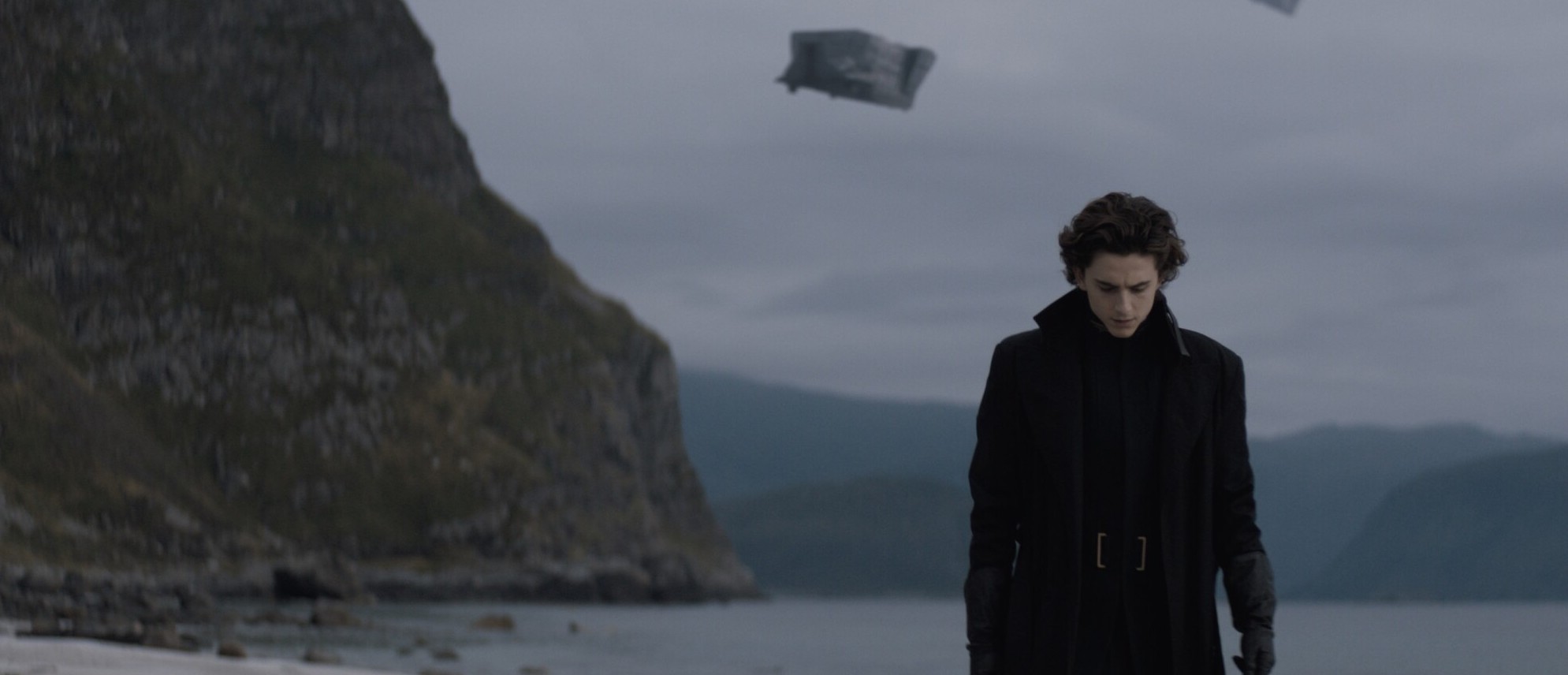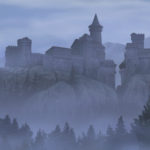
 Denis Villeneuve’s Dune (2021) has arrived at last. Frank Herbert’s classic novel has inspired generations of science fiction fans and creators. Many have deemed the book “unfilmable” (despite David Lynch’s attempt in 1984 and the TV miniseries). But now, Villeneuve and his all-star cast attempt to bring this world of interstellar feuds and insidious prophecies to the screen.
Denis Villeneuve’s Dune (2021) has arrived at last. Frank Herbert’s classic novel has inspired generations of science fiction fans and creators. Many have deemed the book “unfilmable” (despite David Lynch’s attempt in 1984 and the TV miniseries). But now, Villeneuve and his all-star cast attempt to bring this world of interstellar feuds and insidious prophecies to the screen.
But do they succeed where others have failed?
I first read Frank Herbert’s Dune (1965) just before the announcement of Villeneuve’s new adaptation. Just seeing those two names together—Villeneuve and Dune—I knew the marriage was meant to be.
Although I adore David Lynch (he’s personally my favorite living director), I think he missed something about Herbert’s creation. Herbert spun a universe out of sweeping vistas and earth-tones, the cold stone walls of ancient castles and the vast emptiness of planet-wide deserts. It’s a future without computers, aesthetically more fantasy than sci-fi. Lynch’s adaptation, by contrast, felt busy, claustrophobic, overly-futuristic.
But Villeneuve’s previous science fiction work on Arrival (2016) and Blade Runner 2049 (2017) proved the director’s incredible eye for scale and for the mixture of futuristic and natural.
When I finally sat down in the IMAX to watch Villeneuve’s take on Dune, it was as if the film came out of my own dreams of everything it could be.
Fair warning, readers: I’m about to make like our website’s name and geek out.
Villeneuve and cinematographer Greig Fraser somehow capture the full grandeur of Herbert’s imagined world. I found myself shaking my head in wonder at shot after shot. By the end of the two-and-a-half hours, I was nearly numb to it, overwhelmed by the scale of the world and the masterful cinematography.
 The designs too, from the awe-inspiring enormity of the Guild ships to the witch-like robes of the Bene Gesserits, evoke the mysterious spaciousness of the novel. We see the film’s textures range from the sleek-and-clean future of Caladan and Geidi Prime to the Star Wars-esque “used universe” of Arrakis, a transformation reflective of the story itself. In a subtle way, this film serves as a love letter to the vast variety of science-fiction cinema.
The designs too, from the awe-inspiring enormity of the Guild ships to the witch-like robes of the Bene Gesserits, evoke the mysterious spaciousness of the novel. We see the film’s textures range from the sleek-and-clean future of Caladan and Geidi Prime to the Star Wars-esque “used universe” of Arrakis, a transformation reflective of the story itself. In a subtle way, this film serves as a love letter to the vast variety of science-fiction cinema.
Refreshingly—and to the annoyance of some viewers—this film doesn’t dumb down the mythology of Dune. There’s an easy temptation to over-explain or simplify, but Villeneuve manages to translate Dune’s difficult concepts to the visual language of film.
Where the story does pause for exposition, it doesn’t attempt to disguise itself; instead, it accompanies the exposition with more gorgeous visuals, turning these moments into needed breaks.
This isn’t a page-for-page adaptation. Absolute purists might find some frustrations. But I would argue that those purists must consider the needs of a novel versus the needs of a film. Villeneuve’s changes actually allow him to maintain the spirit of the original work.
If I had to offer any critique—and I hesitate to do so—some dialogue choices come off a bit too colloquial for the heightened world of the story. But these moments were few. A great deal of the dialogue comes straight from the novel.
The performances deserve praise as well, especially that of Rebecca Ferguson as the Lady Jessica. She finds an incredible range in the character, from total power to childlike vulnerability. At times she’s even terrifying. Timothée Chalamet also delivers a perfect performance as Paul, bringing fresh emotion to the role while also maintaining the coldness that the character requires.
Several of the early criticisms floating around—specifically, the overall seriousness and the complicated mythology—seem to be criticisms of Dune the novel more than Dune (2021) the film. Yes, the moments of levity are few—but arguably, we find more levity here than we do in the novel. And the mythology, as mentioned, works best when allowed to exist in all its complexity. As an adaptation of Frank Herbert’s masterpiece, this film should be nothing else.
This adaptation only covers the first half of Dune. To quote the Princess Irulan from Lynch’s version: “A beginning is a very delicate time.” It remains to be seen whether a sequel will receive the official green light. But if it does, Villeneuve’s Dune duology (dunology?) could go down as one of the greatest works of science fiction film in history.
I don’t have space here to praise all the praiseworthy aspects of this film. If you’re a Dune fan, go see it. If you’re a science fiction fan, go see it. Hell, if you just want more blockbuster films that have actual quality, go see it. Give this film your money. If you’re comfortable doing so, experience it in IMAX. You won’t regret it.
Dune (2021)
Credits
- Director: Denis Villeneuve
- Writers: Jon Spaihts, Denis Villeneuve, Eric Roth
- Based on the novel by Frank Herbert
- Starring: Timothée Chalamet, Rebecca Ferguson, Oscar Isaac, Josh Brolin, and pretty much everyone else
- Production Companies: Legendary Pictures, Villeneuve Films
Credits (cont)
- Distributed by: Warner Bros. Pictures




